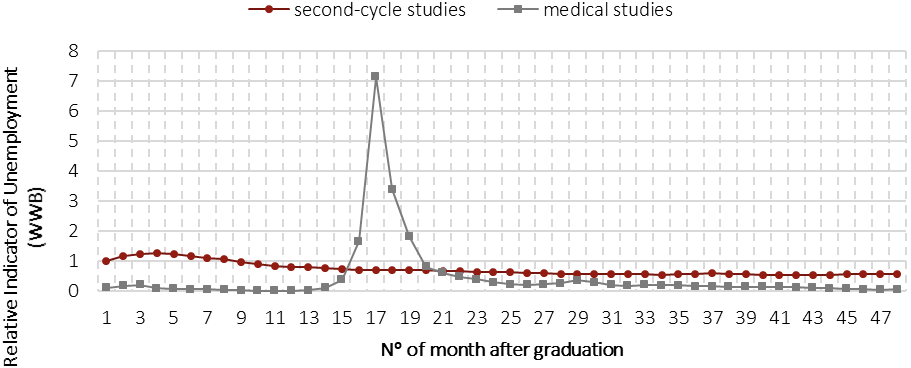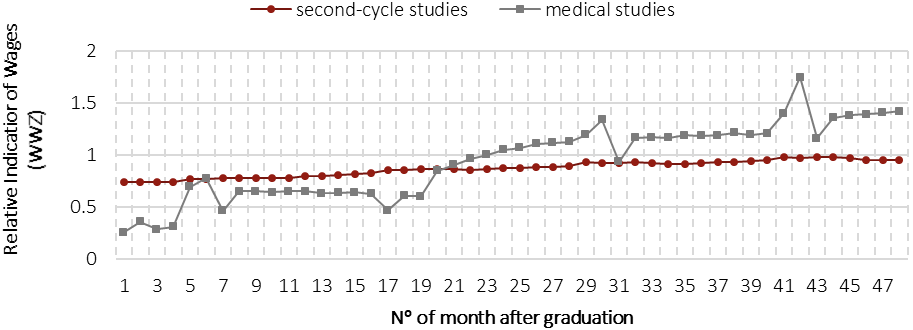
Medical studies graduates and dental medicine graduates are two groups virtually untouched by unemployment. At the same time young doctors – dentists in particular – decide to start their own business after an internship – as can be ascertained from the Polish Graduate Tracking System ELA, run by the National Information Processing Institute on behalf of the Ministerstwo Edukacji i Nauki.
It is common knowledge that medical and dental studies are seen as particularly taxing. Is it also equally difficult for graduates to enter the job market?
One of the more intriguing results is that in a year and a half after graduation, young medical doctors and dentists are suddenly thrust into unemployment – even to the level several times surpassing the value of the indicator among other graduates. It is a result of the organization of the medical profession. In order to gain a license and become medical doctors, graduates complete internships and pass final national exams (Medical Final Exam or Medical-Dental Final Exam). There is a gap of few months between completing the internship and gaining the license. Young medical doctors often register at that time as unemployed as it provides them with the health insurance during the gap. After that time the unemployment numbers drop to virtually zero.

Right after graduation, the salaries of doctors are low but after an internship they grow fast and quickly surpass the monthly wages of an average graduate. As the Polish Graduate Tracking system data shows, medical doctors graduating in 2014 earned 2,400 PLN in the first year after graduation which is only 60 percent of average monthly wages in their poviats of residence. In the fourth year after graduation young doctors already earned 30 percent more than their statistical neighbours, getting salaries of above 6,000 PLN gross.

Young doctors, dentists in particular, often become self-employed after completing an internship. In the fourth year after graduation the percentage of self-employed individuals among dentists (72 percent) was seven times higher, while among other doctors (31 percent) it was three times higher than the analogous participation of second-cycle students (10 percent) . It is worth adding that in the case of dentists the increase in the share of self-employed is linked to a decrease in the share of working full-time, while no analogous correlation is observed among the other doctors.
ELA knows everything about the economic fate of graduates
The Polish Graduate Tracking System (ELA) is developed by the National Information Processing Institute, and
commissioned by the Ministerstwo Edukacji i Nauki. It aims to present the most comprehensive information on the
situation of graduates on the job market. The main source of information in the system are administrative data from
two sources – the Social Insurance Institution system (data, inter alia, about the professional situation of
graduates: employment, unemployment, wages) and the POL-on system (the Integrated System of Information on Science and
Higher Education), i.e. the information system about the higher education supporting the Ministerstwo Edukacji i Nauki
(it contains information, inter alia, on the education of university graduates). Currently, the ELA system generates
five types of reports about the economic fate of tertiary education graduates: Job search and unemployment, Wages,
Work before and after graduation, Work and further studies, Geographical differentiation of graduates’ fate.